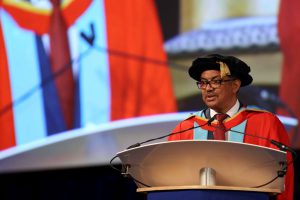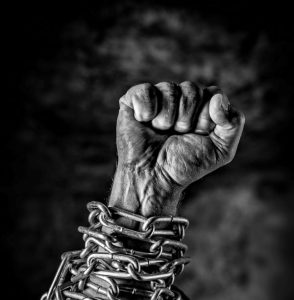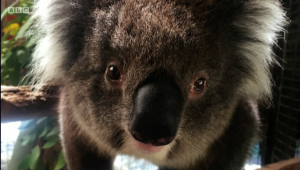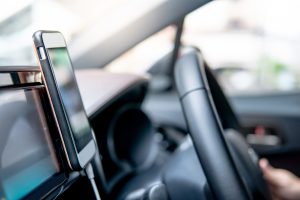
September 25, 2019, by Liz Goodwin
University News Review — Summer 2019
Welcome to the summer 2019 News Review which features some of our top news stories from July and August…
Scientists say there may be less than 10 years’ worth of shale gas left
 Scientists from the University of Nottingham and the British Geological Survey have said that the UK has five times less underground shale gas than previously thought.
Scientists from the University of Nottingham and the British Geological Survey have said that the UK has five times less underground shale gas than previously thought.
A 2013 estimate suggested that UK shale could potentially provide up to 50 years’ worth of current gas demand, whereas new research has found there is significantly lower available resource, corresponding to less than 10 years’ at current demand.
Katie Andrews, Media Relations Manager for the Faculty of Engineering, worked with the report author Professor Colin Snape, to highlight the results from the new study.
The story was widely reported in 300 national and regional UK news outlets, including The Guardian, The Mail Online, The Independent, The Telegraph and BBC News, and generated a reach figure of 670m and advertising value of over £6m.
“We have made great strides in developing a laboratory test procedure to determine shale gas potential. This can only serve to improve people’s understanding and Government decisions around the future of what role shale gas can make to the UK energy’s demand as we move to being carbon neutral by 2050,” said Professor Colin Snape, Director of the Centre of Doctoral Training in Carbon Capture and Storage and Cleaner Fossil Energy at the University.
Fly me to the moon
 July 20 2019 marked the 50th anniversary of the first humans to land on the Moon in 1969 as part of NASA’s Apollo 11 lunar mission.
July 20 2019 marked the 50th anniversary of the first humans to land on the Moon in 1969 as part of NASA’s Apollo 11 lunar mission.
To mark the occasion, Graham Kendall, Professor of Computer Science and University Pro-Vice-Chancellor, wrote an article that was published in The Independent and The Conversation, asking… with the technology available today, could an iPhone fly you to the moon?
On board Apollo 11 was a computer called the Apollo Guidance Computer (AGC). It had 2,048 words of memory which could be used to store ‘temporary results’ — data that is lost when there is no power. This type of memory is referred to as RAM (random-access memory) and the Apollo Computer had 32,768 bits of RAM memory.
To put that into more concrete terms, the latest phones typically have 4GB of RAM. This is more than one million times more memory than that of the Guidance Computer.
In fact, the AGC was closer in power to a classic calculator than a smartphone. “It’s mind-blowing to think about… that a simple calculator, designed to help students decades ago pass their exams, was more powerful than the computer that landed man on the moon,” said Professor Kendall.
Director General of WHO visits his alma mater
 The Director General of the World Health Organization (WHO) returned to his student roots in July when he visited the University to learn about its world-leading research and to meet nursing staff on the front-line of patient care at the Queen’s Medical Centre.
The Director General of the World Health Organization (WHO) returned to his student roots in July when he visited the University to learn about its world-leading research and to meet nursing staff on the front-line of patient care at the Queen’s Medical Centre.
During his visit, Dr Tedros Adhanom Ghebreyesus, a University Alumnus, also received an Honorary Degree recognising his outstanding contribution to world health care.
During his visit, Charlotte Anscombe, Media Relations Manager for Medicine and Health Sciences, arranged for Dr Tedros to talk to BBC Radio Nottingham and BBC1 East Midlands Today.
He told the BBC: “I have special memories here. Happy moments, and I’m glad to be back. I was away for almost 20 years but I was really connected, because I had many friends here. Some now are working with me in Geneva, so it’s like I am still a part of the family.”
Boon, not burden
 Recent analysis by the University of Nottingham’s Rights Lab secured coverage over the summer in the international outlets, Thomson Reuters, Al Jazeera and Global Citizen, and national newspaper website The Mail Online. The research revealed that giving more support to survivors of modern slavery and allowing them to remain in Britain for a year could boost the economy by millions of pounds.
Recent analysis by the University of Nottingham’s Rights Lab secured coverage over the summer in the international outlets, Thomson Reuters, Al Jazeera and Global Citizen, and national newspaper website The Mail Online. The research revealed that giving more support to survivors of modern slavery and allowing them to remain in Britain for a year could boost the economy by millions of pounds.
The financial benefits of providing 12 months of assistance — including housing, healthcare, and legal aid — to people who are recognised by the government as victims would far outweigh the costs.
“Too often, providing survivors with sufficient support to allow for recovery and reintegration is presented as a benefit for survivors, but a cost for society,” said Dr Katarina Schwarz of the Rights Lab.
Dr Schwarz also appeared on BBC World News — arranged by Media Relations Manager for Social Sciences, Nasreen Suleman — where she appeared on the sofa to talk about modern day slavery, what it is, and how it compares to modern day enslavements.
Filming on campus
Should drivers be banned from hands-free?
ITV Good Morning Britain paid a visit to the University’s high-tech driving simulator facility based in the School of Psychology’s Accident Research Unit to report on the news that MPs were calling for drivers to be banned from using hands-free mobile phones.
Questions are being raised about the safety of using hands-free to communicate on the roads, with Labour MP Lilian Greenwood saying that using any type of phone can be distracting
GMB’s news correspondent Katy Rickitt reported from the simulator and said that psychologists at the University have been saying this for years.
The University’s Media Relations Team arranged for Dr Peter Chapman, an expert in the psychology of driving, to speak to Channel 5 News and ITV Evening News.
Explaining the physiology of driver behaviour when using hands-free mobile phones, Dr Chapman said: “Hands-free phones are just as distracting as hand-held, because a remote conversation with someone not physically in the car, takes too much of a drivers focus. The reason it’s dangerous is the cognitive load.”
And finally…
 The BBC1 programme Animal Park explores life behind the scenes at Longleat Estate and Safari Park.
The BBC1 programme Animal Park explores life behind the scenes at Longleat Estate and Safari Park.
Several months ago the Park lost koala Wilpena to kidney disease, soon after she arrived from Australia. But from her death comes an incredible scientific breakthrough that could benefit her entire species for generations to come.
Dr Rachel Tarlinton, Associate Professor of Veterinary Virology in the University’s School of Veterinary Medicine and Science, spent a day filming with presenter Kate Humble and the Animal Park team to explain her research in retroviruses of koalas. She is being helped by Wilpena to spearhead cutting-edge research to transform our knowledge of koala health.
Southern koalas are susceptible to disease, and 30 per cent suffer from the same genetic kidney disease, called oxalate nephrosis, that killed Wilpena. By studying Wilpena’s anatomy and DNA, Dr Tarlinton is getting a much clearer picture of the genes responsible for this devastating disease. She hopes to find genes that prevent the development of other diseases that are rife in these endangered marsupials, such as a strain of HIV that’s particularly prevalent in the northern species of koala.
“That’s the possibility that this work opens up. That we can actually do something about the diseases and do it at a population level, instead of just fixing the individual animal.”
After making the programme, she spoke to Media Relations Manager Emma Rayner about her ‘five minutes of fame.’ She told Emma: “So somewhat dazed at my brush with stardom, and with the satisfaction of spending a whole day talking about my research with people who were actually interested in it, I’m now back in real life and waiting to see what it looks like when it comes out when those three hours of filming will be turned into five minutes I am sure! But at least my kids think I must be really important now.”
No comments yet, fill out a comment to be the first


Leave a Reply